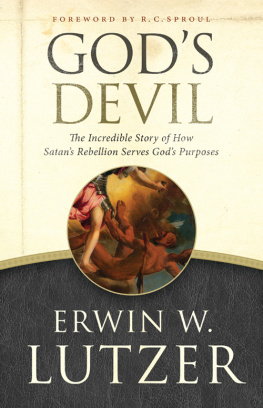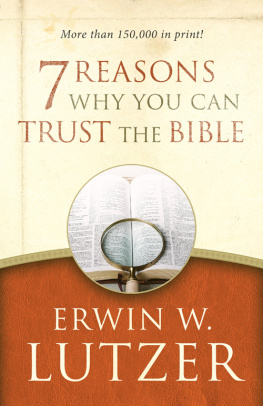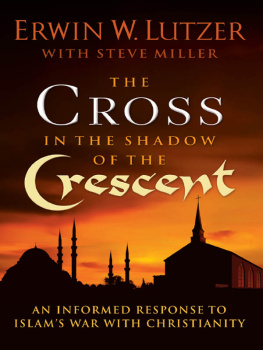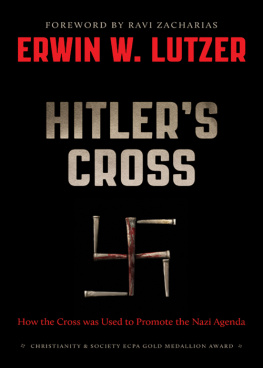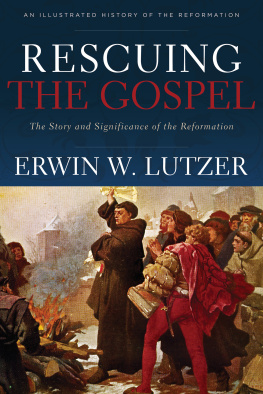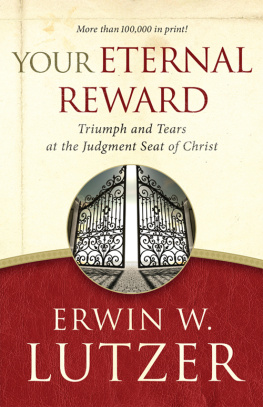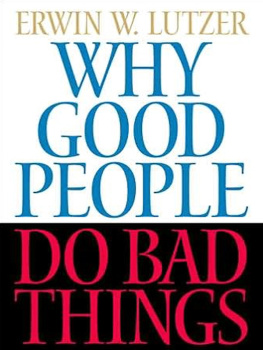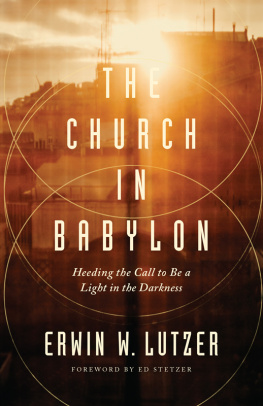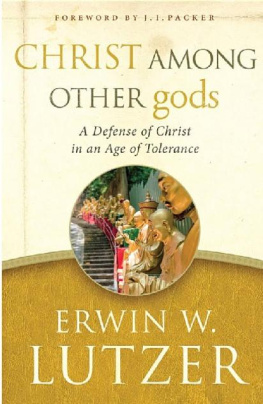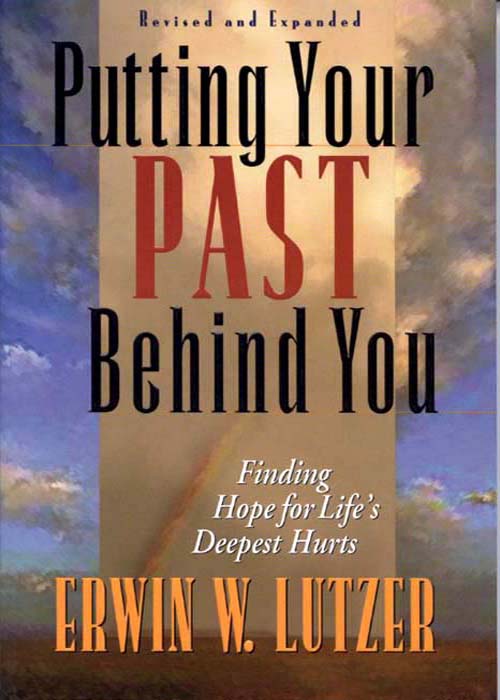ERWIN W. LUTZER
All rights reserved. No part of this book may be reproduced in any form without permission in writing from the publisher, except in the case of brief quotations embodied in critical articles or reviews.
The NIV and New International Version trademarks are registered in the United States Patent and Trademark Office by International Bible Society. Use of either trademark requires permission of International Bible Society.
Scripture quotations marked (KJV) are taken from the King James Version.
Introduction
T housands of people live with the fear that their past will return to haunt them. And even if their secret should never come to light, it invades the mind to torment them, to defeat them, and remind them that they have disappointed God and themselves. Every time they take a step forward they feel as if they must drag a ball-and-chain with them.
The fragmentation of the family and the widespread loss of values has transformed us into a heartless culture bent on self-fulfillment at any cost. Little wonder many people have a past characterized by betrayal, abuse, and a litany of destructive decisions.
This book is based on the conviction that ultimately only Christ can enable us to put our past behind us. I do not mean that the impact of our past is obliterated, for we will always carry with us the sum total of our experiences. But our past need not cripple our walk with God. Indeed, it can be the motivation we need to pursue God more fervently.
God does not always free us from all the effects of the past, but its power can be broken. Indeed, it is often in the lives of those who have suffered most keenly that God does His deepest work. Thousands can testify that God does make us whole if we give Him all the pieces.
As children bring their broken toys,
With tears for us to mend,
I brought my broken dreams to God
Because He was my friend.
But then instead of leaving Him
In peace to work alone,
I hung around and tried to help
With ways that were my own.
At last I snatched them back and cried,
How can you be so slow?
My child, He said, What could I do?
You never did let go.
Author unknown
Let us now embark on a journey that will enable us to find God in our past and build a better future.
Chapter One
Living with
a Tattoo
W hen I asked a woman about the tattoo on her arm, she explained, My former boyfriend did ithe was an abusive alcoholic. She was now happily married to another man, but every day she was reminded of the pain in her past. She would have preferred to remove that tattoo, but it was burned into her skin.
Weve all met people whose past is tattooed onto their souls. Theyve experienced abuse, lived in immorality, or acquired addictions. Some are women who live with the memory of an abortion; others are men who have fathered children out of wedlock or ruined their families. I heard a news report of a young woman who turned her own father over to the authorities because she had seen him commit a murder when she was a child. Think of the memories tattooed onto her soul!
Im trying to rebuild my life, like a house that has been destroyed within and without, a woman wrote after she heard one of our radio broadcasts. I hope to rebuild from the ground floor, and, if possible, not use any of the rotten wood I find all around me. This time, I hope to do the maintenance so that it wont be ruined again.
How different our past would be if we could relive it knowing what we know now. Louisa Tarkington expressed the wish of millions when she wrote:
I wish there were some wonderful place
Called the Land of Beginning Again
Where all of our mistakes and heartaches
And all of our poor selfish grief
Could be dropped like a shabby old coat at the door
And never put on again.
Is there such a place? I believe there is.
True, we cannot begin again in time, for hours become days, days become months, and months become years that can never be relived. No one can go back to the starting line in the race of life. Tacking an outdated calendar on the wall will not bring back the years, nor allow us to erase imprints left by mistakes of bygone days. We cannot go to God, as one teenager did, with Lord, I pray this accident might not have happened!
Like holes left in the wall after nails have been removed, the gaping wounds of sin often leave ugly sores. God wants to bandage our open wounds so that they might be healed. When those wounds have become battle scars, we will know that healing has taken place. Guilt, regret, and bitter heartache can be put behind usthere is a land of beginning again. Our past need not control our present nor future. It is never too late to do what is right; never too late to live our remaining days for God.
In The Scarlet Letter, Nathaniel Hawthorne tells the story of a woman who has a love affair with a young minister. As the story opens she is being punished by having to stand on a public platform with the large letter A, for Adultery, on her breast. She holds her illegitimate daughter in her arms. As the scenario unfolds she makes public expiation for her sin, taking the insults of the townspeople as her duebut she steadfastly refuses to name the father of her child.
In the meantime her husband, a shrewd psychologist, pretends to befriend the man whom he suspects was the accomplice in the affair. On the pretext of being a doctor, the womans husband makes this man squirm for years because the minister will not admit his guilt.
In the story, the immoral man who would not own up to his past suffered far more than the woman who faced her sin, accepting her shame and guilt. Better to come clean than to live with painful secrets that imprison the soul! If the immoral man had been willing to face his past, he could have lived with a clean, forgiven conscience. In choosing to feign innocence, he had to secretly confront his sin every single day.
The Hope of a New Beginning


